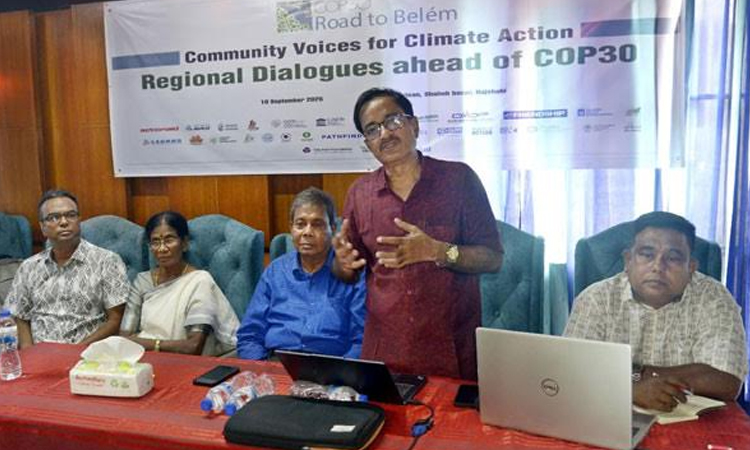News Flash

RAJSHAHI, Sept 10, 2025 (BSS) – Speakers at a meeting here today stressed the need for shifting to less water-intensive crops, conserving surface water through re-excavation of ponds and canals, and implementing integrated water resource management plans to ensure a sustainable water future for the Barind region.
Experts made the observation while addressing a regional dialogue titled “Community Voices for Climate Action: Ahead of COP30” at a city hotel.
Prof. Chowdhury Sarwar Jahan of the Department of Geology and Mining at Rajshahi University addressed the meeting as focal person.
With former Chairman of Rajshahi Education Board Prof. Deepakendra Nath Das in the chair, the meeting was also addressed by Director of Paribartan Rasged Ibne Obayed, Project Manager of Ain O Shalish Kendra Hasibul Hassan, and local unit President of Bangladesh Mohila Parishad Kolpona Roy.
Prof. Chowdhury Sarwar Jahan said the Barind region is among the worst-hit by droughts, with consecutive dry days and temperatures steadily increasing over the past 30 years. He noted that drought episodes have become more erratic due to climate change, a trend likely to worsen in the coming decades.
He added that droughts create severe challenges for vulnerable communities. During dry spells, most natural surface water sources evaporate, leaving no water for drinking, sanitation, or agriculture.
The Barind’s average annual rainfall of 1,400 mm is far below the national average of 2,300 mm. Rainwater does not easily seep into aquifers because of clay soils with low porosity, leading to high evaporation. Moreover, there are no large or deep surface water bodies such as lakes or rivers, so groundwater recharge is very slow.
Traditionally, people rely on hand-pumped tube wells that draw from shallow aquifers depending on seasonal rainfall. However, under current drought conditions, these aquifers often dry up, rendering tube wells ineffective.